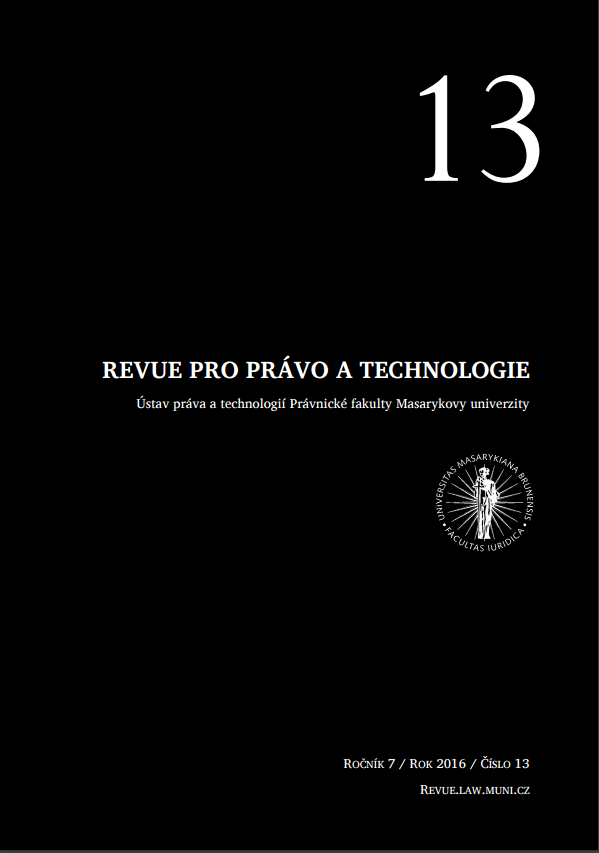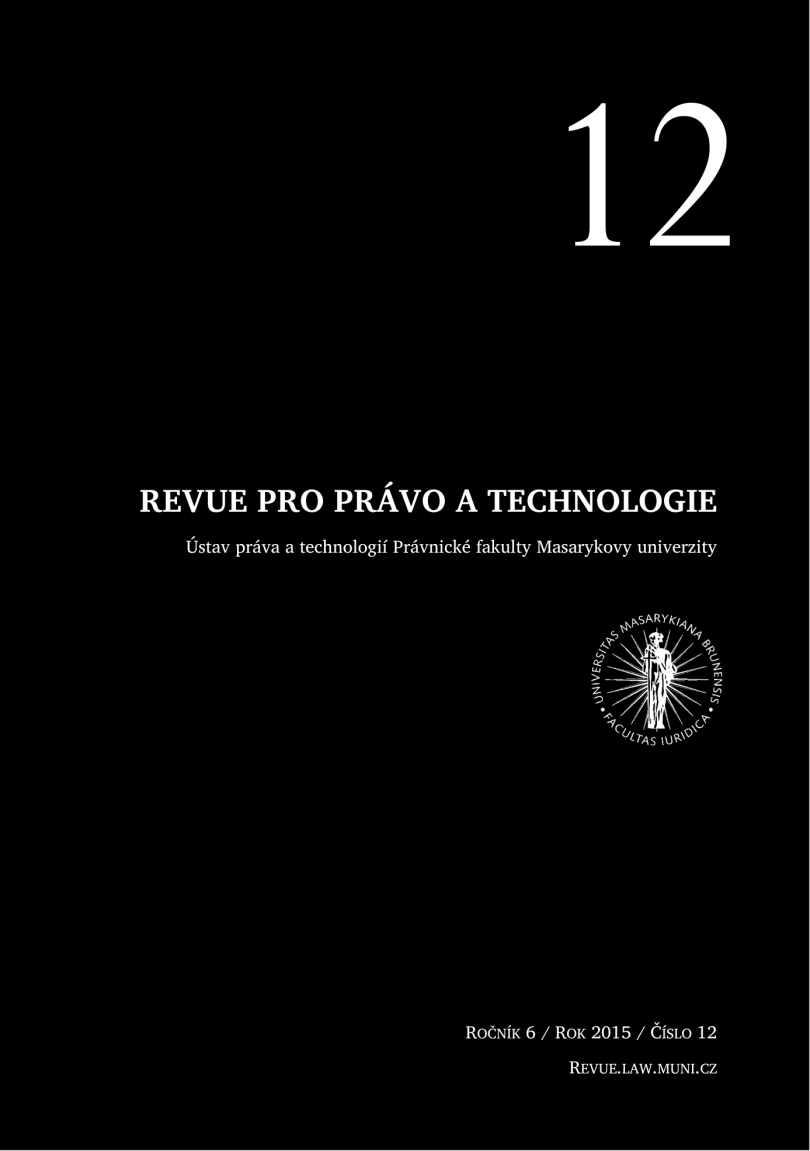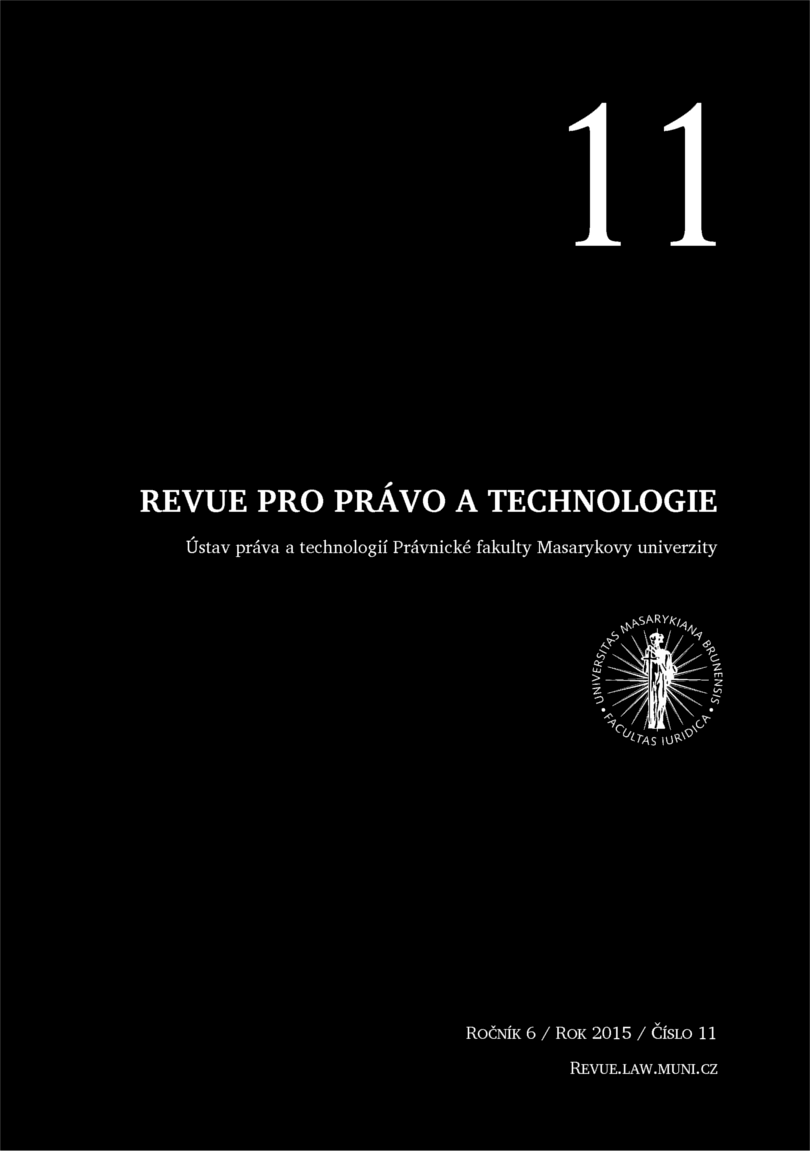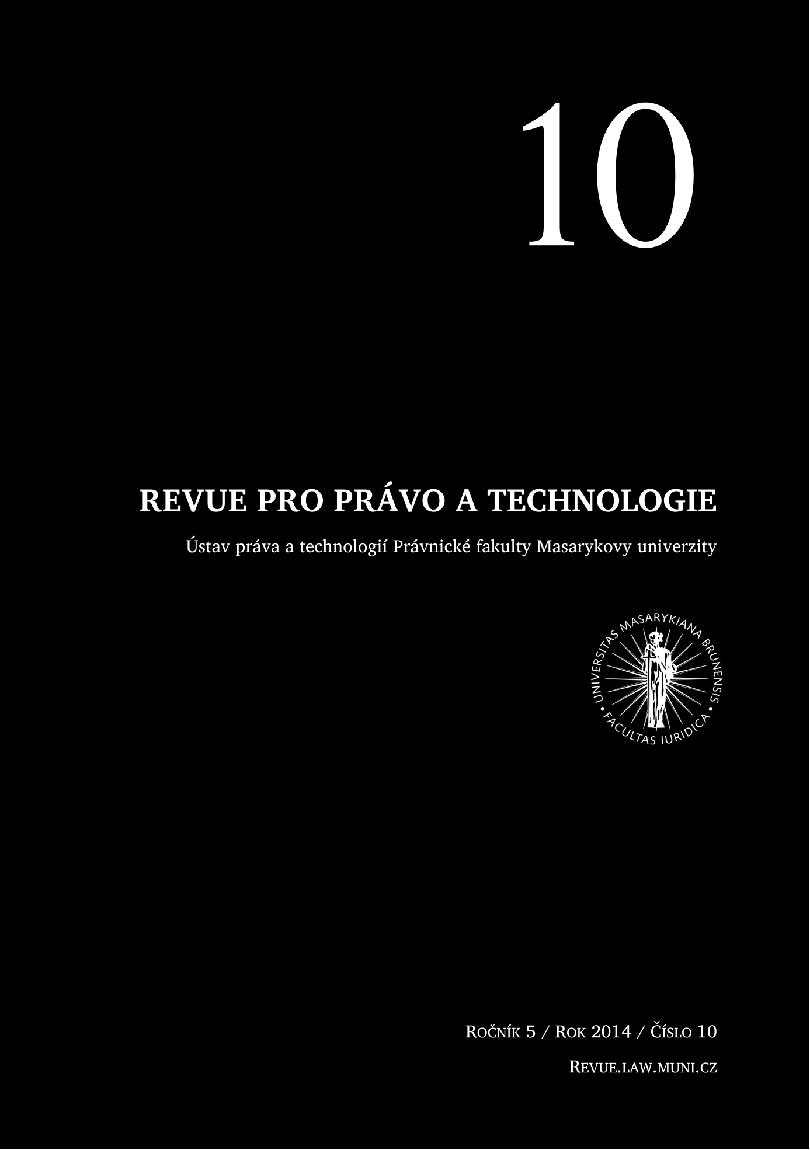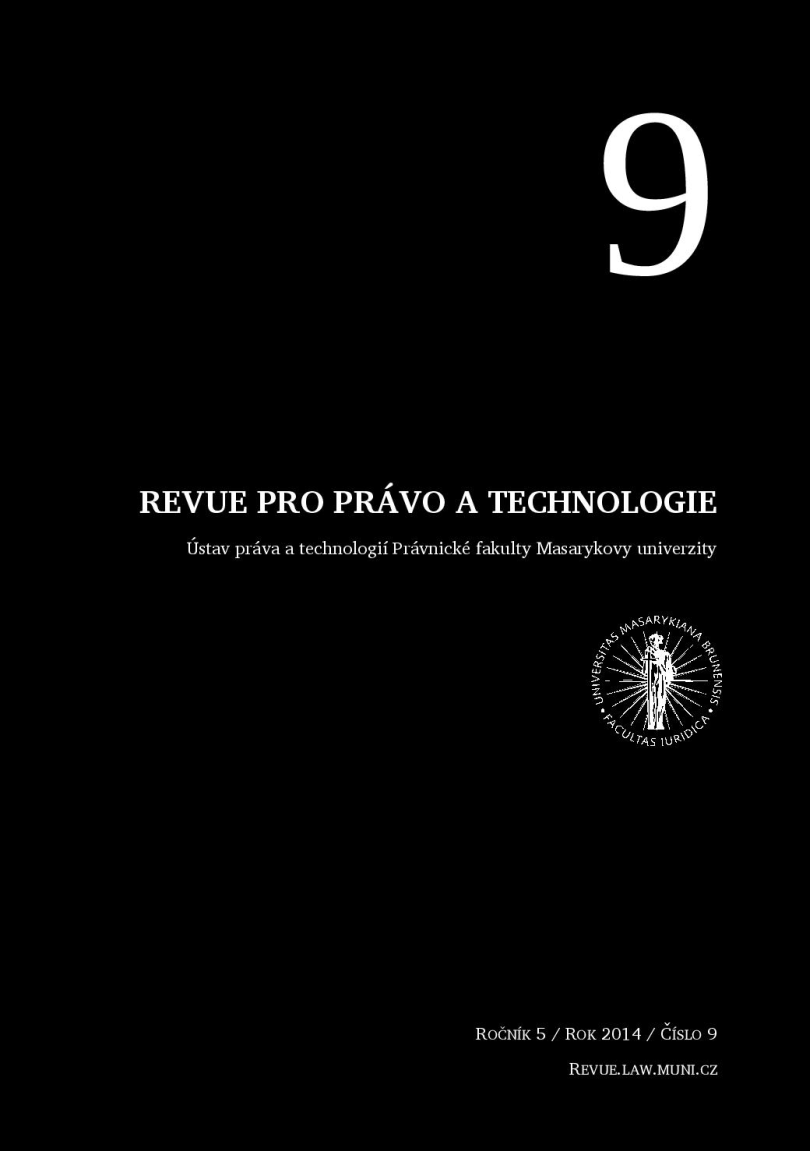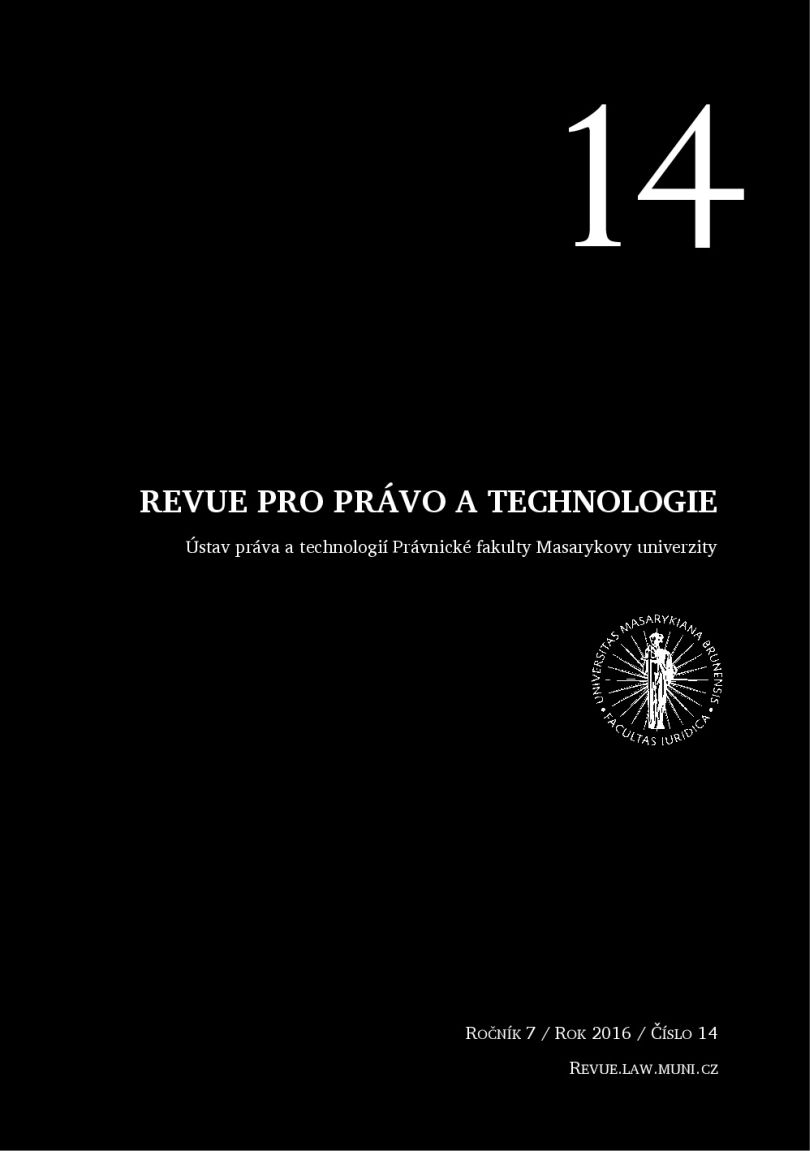
Počítač ako sudca
The subject of this paper is the possibility of a computer as a judge. The introduction describes the history, fundamental and mission basis of cybernetics and its impact on the law. Furthermore, the author examines various issues of decision-making, decision-individuality, computer thinking and axiology. The reasoning leads to the conclusion that the computer can properly complement and support decision-making activity of a judge, but can’t take over his decision-making capability.
More...
